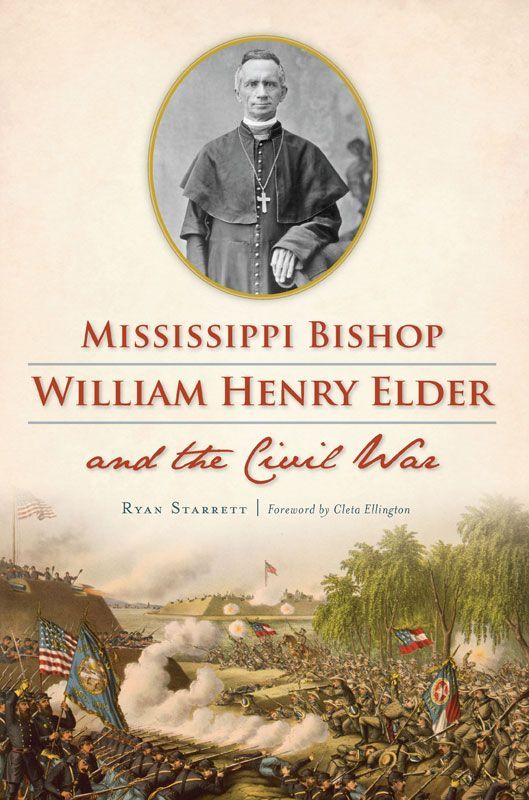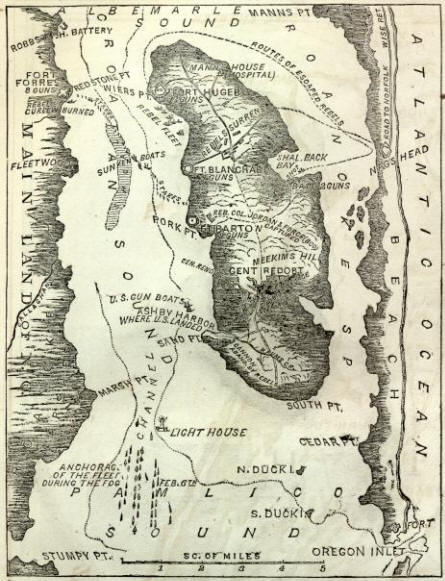Mississippi Bishop William Henry Elder and the Civil War by Ryan Starrett. The History Press, 2019. Paper, ISBN: 978-1467143806. $21.99.
 Ryan Starrett has produced an excellent, if limited local history. Starrett writes about the life and work of William Henry Elder, a Catholic Bishop in Confederate Mississippi. His narrative relies primarily on Bishop’s published diary and other published primary and secondary sources. Starrett’s history is highly personal and sheds light on the Confederate Catholic experience and the relationship between church and state in periods of war.
Ryan Starrett has produced an excellent, if limited local history. Starrett writes about the life and work of William Henry Elder, a Catholic Bishop in Confederate Mississippi. His narrative relies primarily on Bishop’s published diary and other published primary and secondary sources. Starrett’s history is highly personal and sheds light on the Confederate Catholic experience and the relationship between church and state in periods of war.
Catholics in Mississippi formed a microcosm of the state of Mississippi, Starrett claims (20). As a result, studying the life of Bishop Elder gives readers a window into the larger worldview of religious Confederates. Elder and other Catholics did not encourage their congregations to take a stand for or against secession, nor did they demand their congregants vote a certain way (22, 23). This was in stark contrast to Protestants of the era. Elder did not want war, but he would accept war if it came; he called his “flock” to obey the newly established Confederate government (23). “Elder, who, like most Catholic leaders feared anarchy,” the author writes, “cast his lot with the state of Mississippi and the Confederate government” (24).
Starrett presents Elder as both prisoner of his times and transcendent over them. Though he was a Southerner, Elder saw saving souls as his mission: “And everyone—Northerners, Southerners, white, black, rich, poor, Catholic, and Protestant—possessed a soul worth saving” (138). But, when commanded by an occupying Union general, Elder would not say a prayer for Lincoln during Mass (162). The author summarizes: Elder’s “language was a product of his times; his actions were a product of his faith….Bishop Elder lived as a pastor to his people—all his people” (187-88).
The actions of Mississippi Bishop William Henry Elder offer important lessons and pose powerful questions about religion, the Confederate South, and the American Civil War. Starrett’s work is part of emerging scholarship that is attempting to understand Catholics in American Civil War religious history, especially in the South. He paints a picture that is unique when compared to the traditional understandings of Protestants of the period. According to Starrett, Confederate Catholics made every effort to maintain social peace and religious “purity.” Elder, like most Catholic bishops, “was a firm believer in social stability”; therefore, he encouraged his parishioners to faithfully abide by whomever was ruling, whether they be Confederate or Union occupiers (157). At the same time, Elder would not be dictated to by any authority, especially the enemy, when worship or religious liberty was in question. Elder seemed to be a paradox, alternating between exclusivism and egalitarianism. As noted above, his religious mission seemed to transcend human separators (like race, religion, class, and even nation). But his language and faithfulness to the Confederacy show an exclusive understanding of societal organization.
Like most biographers, Starrett is sympathetic toward his subject. Sometimes, however, his sympathy precludes any criticism. The result is that his study seems one-sided at best and hagiographic at worst. As a local history, Starrett captures the intimacy and passion of someone deeply familiar with his subject. Starrett frequently connects Elder’s story to military events within the state of Mississippi. But more national connections would have been beneficial and allowed Starrett to comment on larger themes within Civil War history.
Still, the serious scholar of the Civil War is given much to consider after reading Starrett’s history. Historians would do well to examine further the lived experiences of religious individuals and how they made sense of the unprecedented war raging around them.
Caleb W. Southern is an MA candidate in the Department of History at Sam Houston State University.
